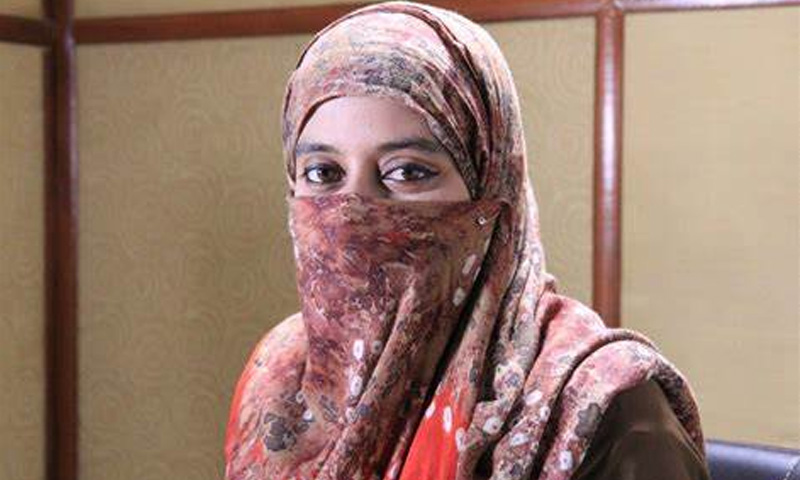- Web Desk
- 4 Hours ago
International students and higher education in Pakistan
One of the core fundamental human rights as recognised globally is that of right to education. The International Covenant on the Civil and Political Rights (ICCPR) in its Article 26(1) states that every individual has the right to education which shall be free, at least in the elementary and fundamental stages. It further states that, technical and professional education shall be made generally available and higher education shall be equally accessible to all on the basis of merit. It is a standard throughout the world that students must be provided accommodation for residence during their higher education.
There are bodies at the domestic, international and regional levels that keep track of these standards. Lack of suitable accommodation for students could in fact be a cause of hindrance to the promotion of international education. While countries in Europe along with the US have education systems that are sought after throughout the world, one must pay attention as to why these education systems became some of the best in the first place. It is because they ensure access to education by providing suitable means to fulfil that very obligation. The first and foremost, following the quality of academics, is the conditions for students to make their programmes accessible which includes accommodation. The ease of access to accommodation then has promoted these education systems for students from all over the world to enrol in their universities.
Pakistan lags behind when it comes to the inflow of foreign students. Many universities provide foreign exchange programmes but apart from these programmes the influx of international students is close to none. Could this be because, no matter the exceptional quality of academics, the academics are made inaccessible because of a lack of a proper accommodation system? Most would point to the policy and regulation immediately, claiming that yes there is no proper accommodation system because there are no rules and regulations to ensure accommodation at local universities. The sad reality is that the laws do in fact contain rules for proper accommodation systems but are not being enforced.
To illustrate this issue, among other laws, the Federal Universities Ordinance of 2002 mandates that universities make sure their campuses have enough space for students to live. Universities must establish and maintain residence halls, approve or licence hostels and other lodging, and provide for the housing of both university and college students, according to Section 4 clause xxiii.
The promulgating law of the Higher Education Commission; the Higher Education Commission Ordinance of 2002 in its Section 10 gives HEC the power to formulate policies to facilitate universities in order to fulfil their objectives of higher education. To support the goal of advancing and developing higher education in the nation, the HEC has developed a variety of policies over the years. As an illustration, the Guidelines for the Establishment of a New University or Institution of Higher Education were created in compliance with the National Education Policy 1998-2010, the Education Sector Reforms: Strategic Plan 2001-2004, and Section 10(1)(d) of the 2002 Ordinance, which specifies that HEC may carry out assessments, enhancements, and promotions of Higher Education, Research, and Development.
According to this very set of guidelines, universities must submit information, including student housing options, in paragraph 6.1.1. The Policy for Students with Disabilities at Higher Education Institutions in Pakistan of 2021 is another example of such a policy. This policy requires the provision of residential and/or on-campus housing-related accommodations for disabled students, in addition to outlining the various ways in which they must be accommodated. Higher education institutions are required to make sure that students with disabilities have access to on-campus housing options, including hostels, as stated in paragraph 6.3. It continues by saying that it is advised that special rooms with restrooms, privacy, and other amenities be assigned to individuals with disabilities at large universities with lots of dorms.
All of these regulations apply to newly established and HEC-approved universities as well as those that are included in the schedule that is attached to the HEC Ordinance. This implies that all universities applying for permission to offer postsecondary education must also approve hostels or offer housing for students. However, only five of the 35 universities that have been approved and established in Islamabad over the past 20 years have taken any such steps.
Students are consequently compelled to live in private hostels, some of which are located in residential areas. The students found themselves stranded as a result of CDA’s decision to close these hostels. Being a problem of the highest degree in itself for home students, the intensity of such an incident would multiply tenfold, had an international student been faced with a similar problem, since they would be miles away from home with quite literally no place to seek refuge.
All these circumstances surrounding the uncertainty of accommodation discourages many students not to travel from their home towns in pursuit of higher education. As a result, even if national universities offer adequate foreign exchange programmes as well some of the most excellent higher education programmes, their academics remain unattractive with the backdrop of a living environment lacking the basic facilities and accommodations. The question then also arises, why would international students wish to come to Pakistan for their higher education, when the home students are not even given proper access to education. This is a weakness in policy implementation which needs to be addressed immediately for Pakistan’s higher education sector to be lucrative in revenue generation for the economy and for its international standing generally.






